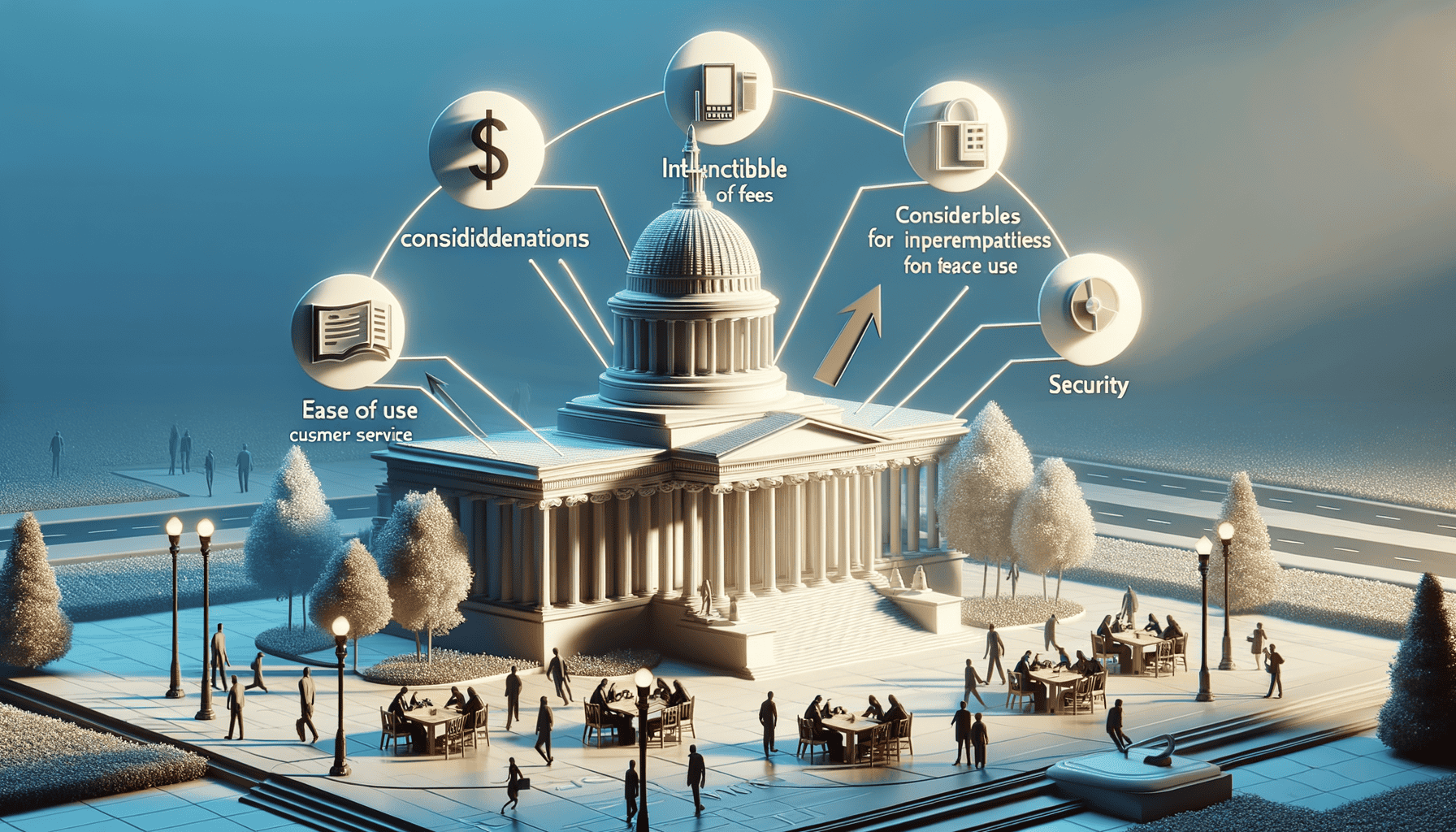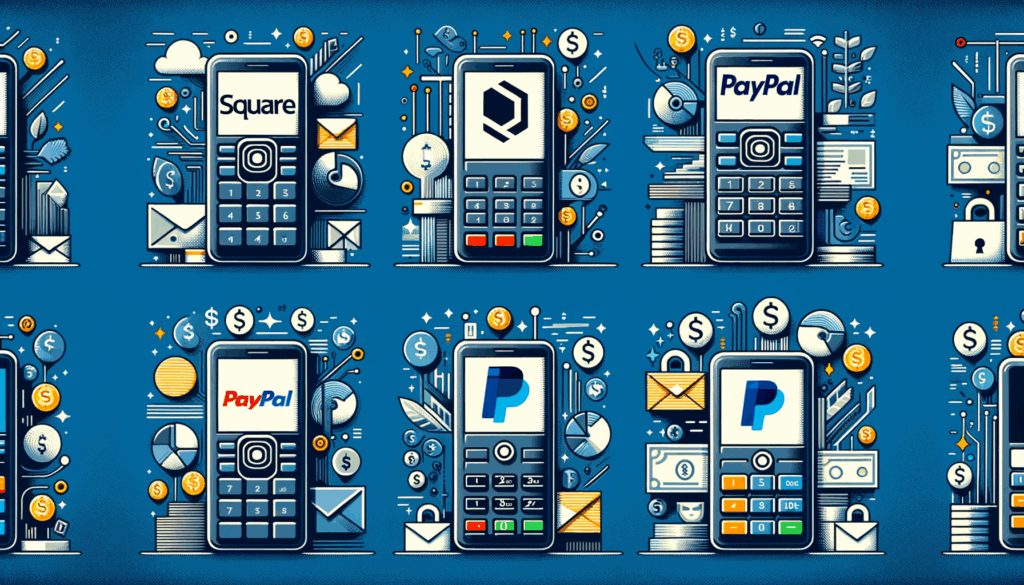
By Pauline Myers June 13, 2025
In today’s digital age, having a reliable payment processor is essential for small businesses in Washington. A payment processor is a third-party service that facilitates transactions between a merchant and their customers.
It allows businesses to accept payments through various channels, such as credit cards, debit cards, and mobile payments. Choosing the right payment processor can have a significant impact on your business’s success, as it can affect your revenue, customer satisfaction, and overall efficiency.
Understanding the Importance of Choosing the Right Payment Processor for Your Washington Small Business
Selecting the right payment processor is crucial for the success of your small business in Washington. Here are some reasons why choosing the right payment processor is important:
1. Increased Revenue: A reliable payment processor can help you accept a wide range of payment methods, making it easier for customers to make purchases. This can lead to increased sales and revenue for your business.
2. Customer Satisfaction: A seamless payment process can enhance the overall customer experience and improve customer satisfaction. Customers appreciate convenience and security when making payments, and a good payment processor can provide both.
3. Efficiency: An efficient payment processor can streamline your business operations and save you time and money. It can automate payment processes, reduce manual errors, and improve cash flow management.
4. Security: Security is a top priority for businesses handling sensitive customer information. A reputable payment processor will offer advanced security features, such as encryption and fraud detection, to protect your business and your customers from cyber threats.
Factors to Consider When Selecting a Payment Processor for Your Small Business in Washington

When choosing a payment processor for your small business in Washington, there are several factors to consider. Here are some key considerations to keep in mind:
1. Payment Methods: Make sure the payment processor supports the payment methods that your customers prefer, such as credit cards, debit cards, mobile payments, and online wallets.
2. Fees and Rates: Compare the fees and rates of different payment processors to find the most cost-effective option for your business. Look for transparent pricing and avoid hidden fees.
3. Integration: Consider how well the payment processor integrates with your existing business systems, such as your e-commerce platform, accounting software, and inventory management system.
4. Customer Support: Choose a payment processor that offers reliable customer support to assist you with any issues or questions that may arise. Look for 24/7 support and multiple contact options.
5. Security and Compliance: Ensure that the payment processor complies with industry standards and regulations, such as PCI DSS compliance, to protect your business and your customers’ data.
Comparing Different Payment Processor Options Available for Washington Small Businesses

There are several payment processor options available for small businesses in Washington. Here are some of the most popular options and their key features:
1. Square: Square is a popular payment processor that offers a range of services, including point-of-sale systems, online payments, and invoicing. It is known for its user-friendly interface and transparent pricing.
2. PayPal: PayPal is a widely used payment processor that allows businesses to accept payments online, in-store, and on mobile devices. It offers fast transactions, secure payments, and easy integration with e-commerce platforms.
3. Stripe: Stripe is a flexible payment processor that caters to businesses of all sizes. It offers customizable payment solutions, advanced security features, and seamless integration with popular e-commerce platforms.
4. Authorize.Net: Authorize.Net is a trusted payment processor that specializes in online payments. It offers a secure payment gateway, fraud prevention tools, and recurring billing options for subscription-based businesses.
The Benefits of Using a Local Payment Processor for Your Washington Small Business
Choosing a local payment processor for your small business in Washington can offer several benefits. Here are some advantages of using a local payment processor:
1. Personalized Service: Local payment processors often provide personalized service and support tailored to the needs of small businesses in Washington. You can build a relationship with a local provider and receive dedicated assistance when needed.
2. Community Support: Supporting local businesses is important for the economy and the community. By choosing a local payment processor, you can contribute to the growth and success of businesses in Washington.
3. Faster Response Times: Local payment processors are more accessible and responsive to your inquiries and concerns. You can expect quicker response times and resolution of issues compared to larger national providers.
4. Local Expertise: Local payment processors have a deep understanding of the local market and regulations in Washington. They can offer valuable insights and guidance to help you navigate the payment processing landscape effectively.
Key Features to Look for in a Payment Processor for Your Small Business in Washington
When selecting a payment processor for your small business in Washington, it’s important to look for key features that can enhance your payment processing experience. Here are some essential features to consider:
1. Payment Gateway: A secure payment gateway is essential for processing online payments securely. Look for a payment processor that offers a reliable gateway with encryption and fraud prevention tools.
2. Mobile Payments: With the increasing popularity of mobile payments, it’s important to choose a payment processor that supports mobile transactions. Make sure the processor offers mobile-friendly solutions for your customers.
3. Reporting and Analytics: Access to detailed reporting and analytics can help you track your sales, monitor payment trends, and make informed business decisions. Choose a payment processor that provides robust reporting tools.
4. Recurring Billing: If your business offers subscription-based services or products, look for a payment processor that supports recurring billing. This feature can automate billing cycles and improve cash flow management.
5. Multi-Currency Support: If your business operates internationally or caters to customers from different countries, choose a payment processor that offers multi-currency support. This can help you accept payments in various currencies and expand your customer base.
Tips for Negotiating Fees and Rates with Payment Processors for Washington Small Businesses
Negotiating fees and rates with payment processors can help you save money and find the best deal for your small business in Washington. Here are some tips for negotiating fees and rates with payment processors:
1. Compare Multiple Quotes: Get quotes from multiple payment processors and compare their fees and rates. This will give you leverage when negotiating and help you find the most competitive offer.
2. Ask for Discounts: Don’t be afraid to ask for discounts or special rates from payment processors. Many providers are willing to negotiate fees to win your business, especially if you have a strong sales volume.
3. Consider Volume Discounts: Some payment processors offer volume discounts based on your transaction volume. If your business processes a high volume of transactions, you may be eligible for lower rates.
4. Review Contract Terms: Carefully review the contract terms and conditions of the payment processor before signing. Look for any hidden fees or long-term commitments that may impact your bottom line.
5. Seek Customized Solutions: Work with the payment processor to customize a pricing plan that meets your specific needs and budget. Tailored solutions can help you save money and optimize your payment processing.
Ensuring Security and Compliance with Payment Processors for Your Washington Small Business
Security and compliance are critical considerations when choosing a payment processor for your small business in Washington. Here are some tips for ensuring security and compliance with payment processors:
1. PCI DSS Compliance: Choose a payment processor that is PCI DSS compliant to protect your business and your customers’ data from security breaches. PCI DSS sets standards for handling cardholder information securely.
2. Encryption: Look for a payment processor that uses encryption technology to secure transactions and protect sensitive data. Encryption ensures that payment information is transmitted securely over the internet.
3. Fraud Prevention: Select a payment processor that offers advanced fraud prevention tools, such as tokenization and real-time monitoring, to detect and prevent fraudulent transactions. Protecting your business from fraud is essential for maintaining trust with your customers.
4. Data Security: Ensure that the payment processor has robust data security measures in place to safeguard your business data and prevent unauthorized access. Regular security audits and updates are essential for maintaining a secure payment environment.
5. Compliance with Regulations: Verify that the payment processor complies with relevant regulations and industry standards, such as GDPR and HIPAA, to protect customer privacy and ensure legal compliance.
Integrating Payment Processors with Your Existing Business Systems in Washington
Integrating a payment processor with your existing business systems is essential for seamless operations and efficient payment processing. Here are some tips for integrating payment processors with your existing systems in Washington:
1. E-commerce Platforms: Choose a payment processor that integrates easily with popular e-commerce platforms, such as Shopify, WooCommerce, and Magento. This will allow you to accept online payments directly through your website.
2. Point-of-Sale Systems: If you have a physical storefront, ensure that the payment processor is compatible with your point-of-sale system. Look for plug-and-play solutions that can be easily integrated with your existing hardware.
3. Accounting Software: Streamline your financial processes by integrating the payment processor with your accounting software, such as QuickBooks or Xero. This will automate reconciliation and reporting tasks, saving you time and reducing errors.
4. Inventory Management: Sync the payment processor with your inventory management system to track sales, manage stock levels, and streamline order fulfillment. This integration can improve inventory accuracy and optimize supply chain operations.
5. Customer Relationship Management (CRM): Integrate the payment processor with your CRM system to track customer transactions, analyze purchasing behavior, and personalize marketing campaigns. This integration can enhance customer engagement and retention.
Understanding the Customer Experience with Different Payment Processors for Washington Small Businesses
The customer experience plays a crucial role in the success of your small business in Washington. When choosing a payment processor, consider how it will impact the customer experience. Here are some factors to consider:
1. Payment Options: Offer a variety of payment options to cater to different customer preferences. Choose a payment processor that supports popular payment methods, such as credit cards, debit cards, and mobile payments.
2. Seamless Checkout Experience: Ensure that the payment processor provides a seamless checkout experience for customers, with minimal steps and easy navigation. A user-friendly interface can reduce cart abandonment rates and increase conversions.
3. Fast Transactions: Customers expect fast and secure transactions when making payments online or in-store. Choose a payment processor that processes transactions quickly and efficiently to provide a positive customer experience.
4. Transparent Pricing: Transparent pricing is essential for building trust with customers. Make sure the payment processor clearly communicates fees, rates, and terms to avoid any surprises during the checkout process.
5. Customer Support: Reliable customer support is crucial for resolving any payment-related issues or inquiries promptly. Choose a payment processor that offers responsive customer support to assist your customers when needed.
FAQs
Q.1: What is a payment processor?
Answer: A payment processor is a third-party service that facilitates transactions between a merchant and their customers by processing payments through various channels, such as credit cards, debit cards, and mobile payments.
Q.2: How do I choose the right payment processor for my small business in Washington?
Answer: When choosing a payment processor for your small business in Washington, consider factors such as payment methods supported, fees and rates, security features, integration options, customer support, reputation, scalability, compliance, customization options, reporting and analytics.
Q.3: What are some popular payment processors for small businesses in Washington?
Answer: Some popular payment processors for small businesses in Washington include Square, PayPal, Stripe, Authorize.Net, Worldpay, and Elavon.
Q.4: How can I negotiate fees and rates with payment processors to save money?
Answer: To negotiate fees and rates with payment processors, compare multiple quotes, understand pricing structures, ask for discounts, negotiate volume discounts, avoid hidden fees, lock in rates, bundle services, review contracts carefully, leverage competition, and seek professional help.
Q.5: How can I provide a seamless checkout experience for customers with the right payment processor?
Answer: To provide a seamless checkout experience for customers, offer multiple payment options, streamline the checkout process, optimize for mobile devices, allow guest checkout, use a secure payment gateway, implement auto-fill forms, display clear pricing, provide order confirmation, offer an easy returns process, and collect feedback from customers.
Conclusion
Choosing the best payment processor for your small business in Washington is a critical decision that can impact your revenue, customer satisfaction, and overall success.
By understanding the importance of selecting the right payment processor, considering key factors, comparing different options, and ensuring security and compliance, you can make an informed decision that aligns with your business goals and needs.
By following the tips and recommendations outlined in this article, you can navigate the payment processing landscape effectively and enhance the customer experience for your Washington small business.